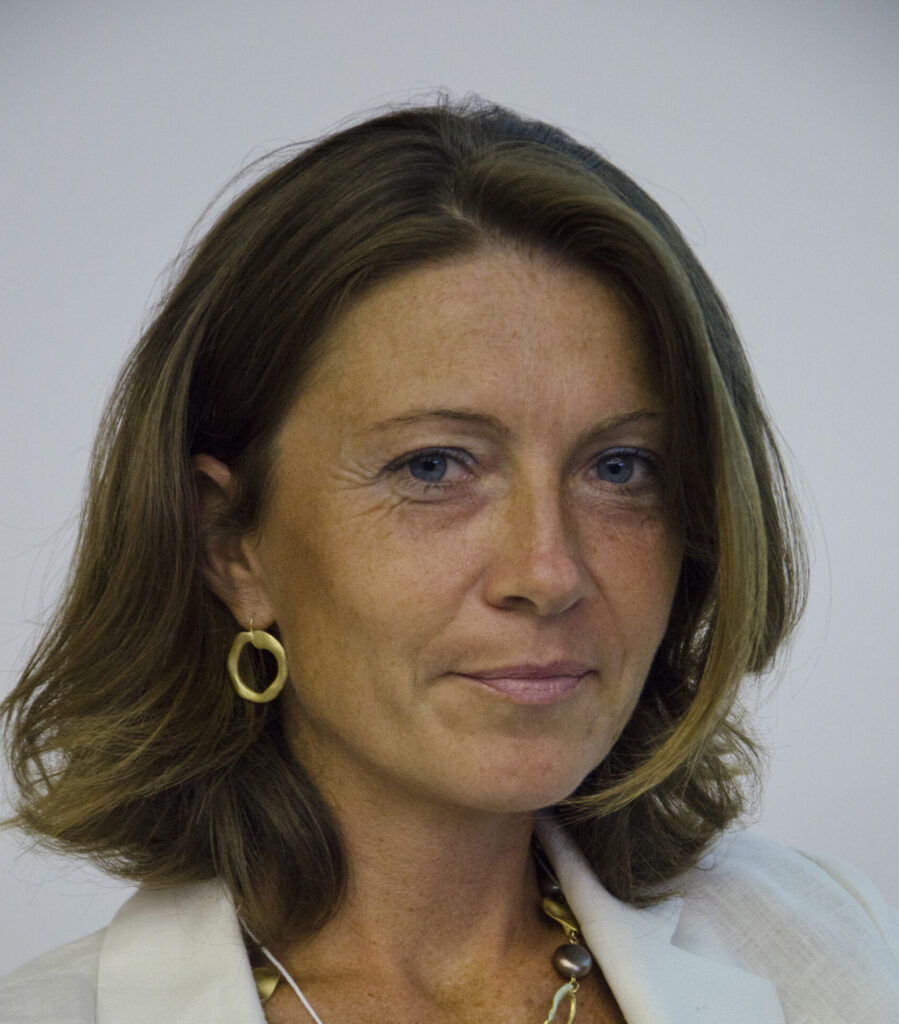Who is Francois Bonnici? Would you like to introduce yourself?
«François Bonnici is a public health physician, professor, social change practitioner, foundation leader and award-winning co-author of the book, The Systems Work of Social Change. He currently serves as Director of the Schwab Foundation for Social Entrepreneurship and Head of Social Innovation at the World Economic Forum in Geneva.
Originally from South Africa (with family heritage from Italy, Malta, Cyprus as well as the Middle East and North Africa), his career started in medical and humanitarian work and evolved to advance innovative models of social change, founding the Bertha Centre for Social Innovation at the University of Cape Town as the first such centre in Africa. He is an Archbishop Tutu African Leadership Fellow, Rhodes Scholar, and Visiting Fellow at the University of Oxford and at the University of Geneva Centre for Philanthropy».
When and why was the Schwab Foundation established?
«The Schwab Foundation for Social Entrepreneurship was established in 1998, by Professor Klaus Schwab and Hilde Schwab. They sensed that more innovative and sustainable approaches to social inequality and environmental challenges was emerging. These models of social innovation and social entrepreneurship offered something radically different to what business, international development or traditional charities could deliver at the time. They were of course inspired by Prof Muhammad Yunus, Sir Fazle Abed, Dr Vera Cordeira and others as a new generation of pioneers channeled their passion, persistence, ingenuity and sense of injustice to finding new ways to achieve real change in the world around them».
What is the statutory purpose of the Foundation?
«The Schwab Foundation for Social Entrepreneurship aims to promote the concept of social entrepreneurship worldwide. As part of this purpose, the Foundation creates communities engaged and interested in this mission. It stimulates its conceptual development through research and studies, but also supports social entrepreneurs or targeted activities in the global public interest, with the World Economic Forum and its various communities.
The activities of the Schwab Foundation for Social Entrepreneurship aim to broaden the framework for social engagement by institutions and individuals, integrating the meaning of social entrepreneurship with the notion of social responsibility, philanthropy, governance and global citizenship».
What projects does the foundation work on and why?
«For over two decades the Schwab Foundation has championed the work of innovative social change leaders, bringing their models to the attention of world leaders, integrating them into the platforms and initiatives of the World Economic Forum alongside other decision makers. Impact studies have shown how over 722 million lives have been directly improved by the work of this community of over 400 leading social innovators in over 190 countries.
As we seek to rapidly accelerate progress toward the Sustainable Development Goals, we need to scale these models and work to have them adopted by other institutions and organizations».
In your opinion, what is the mission of an organization like the Schwab Foundation?
«Through three decades of exploring the best models of social innovation, the Schwab Foundation has a unique opportunity to bring to the world’s attention that real and proven alternatives to many of today’s problems already exist».
Let’s talk about the new context of recent years (war, pandemic, climate crisis). How has this context changed the framework for philanthropy?
«Over the past two years during the pandemic and the aftermath of worsening inequality, inflation and global instability, we have witnessed how their work is more relevant than ever. Foundations and philanthropy must stand by local organizations and help them build further capacity for long term, systemic work, as well as crisis response work. For example, with Glocal Healthcare and Mann Deshi Foundation bringing quality healthcare to rural India to combat COVID, or with CUFA Holdings or Preta Hub empowering Black local businesses in Brazil overcoming the economic barriers of racial inequity, or with Africa Teen Geeks, RLabs or Silulo Ulutho Technologies using digital technology, artificial intelligence and big data to create inclusive education platforms in South Africa.
And of course we stand by those in Ukraine, where social innovators have adapted to respond to the devastating consequences of war on its population. They developed innovative approaches to deal with mass displacement and with refugees. They supported family welfare and mental health issues and at the same time continued economic activity despite the most challenging circumstances. Schwab Foundation Awardee Sergey Kostin remains in Odessa, where his organization, The Way Home continues to providing shelter, food, transport and psychological support to families from across the Ukraine».
What new trends are emerging in philanthropy?
«We are operating in a fast changing global context, and at the same time the depth and complexity of problems also have long historical roots, we are facing the urgency of climate change and the impact on inequality. Trends in philanthropy are seeking to operate in this complexity and be catalytic for creating systems of change, rather than siloed outcomes.
There is great interest in the funding of networks of collaborations of grantees, of multistakeholder partnerships and coalitions for collective and coordinated action. There is a recognition of the need for institution building with longer term commitments rather than funding projects. There is also a drive towards people-centred approaches, with more local, direct and distributed grant making with more ownership and priority setting by local actors and new partnerships with grantees.
There are evolving trends towards with transparency and governance transformation, operations and processes that are more grantee oriented, innovative financing or blended financing structures. And it goes without saying that much of this is being transformed by the digital revolution, and the opportunity for digital giving, better data collection and the opportunities of digital architecture for collective work».
What are the conditions for the relationship between beneficiaries and foundations to become even more effective?
«It is critical to create the space for peer-based conversations and dialogue about what is working and what is not in the relationship between foundations and their grantee partners. Often much goes unsaid because of the fear of losing future funding, and so foundations do not have the opportunity to learn. Building trust will be core to a more effective partnership that is joined in a vision for impact. Increasingly, local organizations, led by local leaders are organizing better to be able to engage with foundations in a different kind of relationship, where the power dynamics are shifting».
What is your personal vision of philanthropy in the future?
«Philanthropy remains the one catalytic form of funding that can really take risks, unlike corporate philanthropy or government funding of programs with taxpayer money. I would like to see philanthropy evolve to be ambitious and move towards funding systemic changes by being more open, agile, informed, long-term and engaged partnership with other social and environmental change actors and see themselves as part of these movements for change».
*This interview was conducted on the occasion of the Swiss Foundations Symposium 2022 “Perspectives” organised by SwissFoundations–Association of Swiss Grantmaking Foundations (www.swissfoundations.ch).















